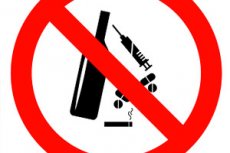Medical expert of the article
New publications
Back pain after drinking and smoking
Last reviewed: 04.07.2025

All iLive content is medically reviewed or fact checked to ensure as much factual accuracy as possible.
We have strict sourcing guidelines and only link to reputable media sites, academic research institutions and, whenever possible, medically peer reviewed studies. Note that the numbers in parentheses ([1], [2], etc.) are clickable links to these studies.
If you feel that any of our content is inaccurate, out-of-date, or otherwise questionable, please select it and press Ctrl + Enter.

Anyone can feel back pain after excessive alcohol consumption. When intoxicated, you can fall into a deep and heavy sleep in an uncomfortable position for a long time. As a result, some part of the body becomes numb, muscles and joints stretch. This is also facilitated by a change in the rheological properties of blood under the influence of alcohol, the blood becomes viscous and thick and does not reach all tissues, especially those supplied by arterioles and capillaries. The tissues feel oxygen starvation. In the morning, after waking up, a person can feel numbness and pain in the back, often without a specific localization. Even when taking a vertical position, you can notice that one shoulder is higher than the other, and the first movements can be accompanied by back pain radiating to the hip.
If this is a one-time situation and after a little warm-up the pain goes away, the spasms stop and there is no numbness, then nothing terrible has happened. It is recommended to do gymnastics and drink more water.
As a result of chronic alcohol intoxication, a person's liver function is disrupted, and therefore, metabolism. The disorder of metabolic processes leads to the fact that joint and muscle tissues regularly experience hypoxia and do not receive enough nutrients, even if they enter the body. In addition, people suffering from alcohol addiction do not pay much attention to a complete and balanced diet, and often lead a sedentary lifestyle. Their bone and muscle tissue suffers from the fact that alcohol has diuretic properties. Beer is especially famous for this, which many consider a completely harmless drink. Regular losses of essential substances, such as calcium, potassium, magnesium, ascorbic acid, proteins lead to bone fragility and muscle tissue atrophy. Consequently, dystrophic processes occur in the spinal column, leading to its curvature and the development of osteochondrosis, vertebral hernias, arthritis and arthrosis. Also, any injury, and in a state of alcohol intoxication the probability of receiving it increases, leads to complex and frequent fractures.
Alcoholic beverages have a negative effect on the kidneys, increasing the load on them and causing exhaustion of the organs. Chronic alcohol intoxication causes the formation of stones in the kidneys and urinary organs, as well as inflammatory processes that manifest themselves as back pain in the lumbar region. After another libation, the pain usually worsens.
Intense girdle pain, often radiating to the shoulder blade, shoulder and back, is present in the symptoms of acute or chronic pancreatitis, which in most cases (up to 70%) develops due to alcohol abuse after another drinking bout. Sometimes a single heavy drinking bout is enough to cause acute pancreatitis.
Severe sudden back pain after drinking alcohol does not exclude an attack of angina or acute myocardial infarction. In this case, it often radiates to the left arm, shoulder blade, lower jaw.
Back pain after smoking
Recently, many studies have been conducted that confirm the assumption that back pain is related to smoking. One of the latest studies, conducted at the University of Rochester (USA), assessed the health of patients with spinal disorders, comparing smokers, non-smokers, and patients who quit smoking during the study. Their condition was monitored for a fairly long period of time - eight months. More than five thousand people participated in it after a course of conservative treatment, many of whom also underwent surgery. The intensity of the pain was assessed using a visual analogue scale.
The subjects who did not smoke at all reported the lowest intensity values, the average values were in those who quit the bad habit during the experiment. Patients who continued to smoke suffered from pain significantly more. This study involved people with diseases of the musculoskeletal system, and at Evanston University (USA) they concluded that smoking itself causes chronic back pain. During the year, volunteers filled out questionnaires about their health, the presence of bad habits, and they all underwent magnetic resonance imaging of the brain.
Scientists have concluded that smoking increases the activity of interactions between the brain's nucleus and the medial prefrontal cortex. This reduces smokers' resistance to back pain and makes them more susceptible to its occurrence.
In addition to the effect on the brain, smoking increases the immediate risk of many diseases of vital organs, manifested by back pain. These are inflammatory diseases of the respiratory organs (bronchitis, bronchial asthma, pneumonia), neoplasms of this localization. Smoking has a detrimental effect on the digestive organs, increasing the risk of tumor growth in the oral cavity, throat, esophagus, stomach. Peptic ulcer disease and gastritis are observed more often in smokers than in non-smokers. Smoking affects the main motor of the body - the heart, experiencing regular oxygen starvation and overload, ridding the body of toxic substances.
Various studies confirm that quitting smoking is much more effective than any treatment, and that heavy smokers who do not want to give up their bad habit cannot be cured.


 [
[